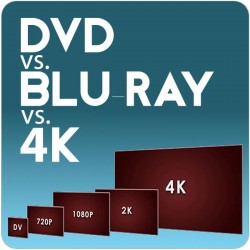Weekly News Roundup (7 September 2014)
Happy father’s day for those that do not live in the UK or US. In fact, I’m not quite sure if it’s father’s day anywhere else but here in Australia (although a quick search suggests Belgium, out of all places, also celebrate it on the same day). I watched Alexander Payne’s Nebraska over the last few days, and I have to say it was definitely an appropriate movie for father’s day, even if when I started watching it I had no idea.
Lots to go through this week, most of the stories unfortunately only came about in the last couple of days which meant weekdays of mostly thumb twiddling, and then rushing to get everything done on Saturday. Please excuse teh lower than norml quality.
![]()

Downloading movies is just as bad as promoting terrorism online, or sharing child pornography, according to an Australian media company
Hyperbolic much? So movie piracy is basically the same thing as terrorism and pedophilia, according to Australian movie studio Village Roadshow. Statements like this do not help to elevate the so called dangers of piracy (because most people realise that, at its heart, it’s all just a question of money), but I worry that it trivialises the much more insidious, dangerous and very much real threat of online terrorism and pedophilia. This is also the same company, in its submission to an Australian government call for input on ways to solve the piracy problem by giving Hollywood everything they want, that says 900,000 jobs are at stake if piracy isn’t stopped. 900,000 is 8% of Australia’s workforce, and a number that’s higher than the total number of unemployed in the country at this time – sounds like quite a lot considering we don’t really have a movie industry.
The same week also saw Australia’s Media, Entertainment, and Arts Alliance back the government’s Internet censorship plans, only for the same union to backtrack and withdraw their support soon after. Turns out this union that represents journalists (whom are almost always against censorship) also represents people working in film and TV (which do support censorship), hence the schizophrenic positions the union seems to be taking.
Silicon Valley has also stepped into the debate here, and you can’t but help feel that Australia has become a pivotal arena for those that have different views on how to battle piracy (simply because our government is stupid and clueless enough to be persuaded to do just about anything). The Computer and Communications Association (CCIA), an industry group that represents pretty much every tech company that exists including Facebook, Google, Microsoft and Samsung, has waded into the debate on the side of consumers by saying that things like domain blocking and three-strikes simply do not work. Instead, content owners should focus on availability, ease of use and more equitable pricing, in order to fight piracy. A common sense position that will no doubt be ignored by our center-right government.
Fun times in Australia, that’s for sure.
All this focus on piracy has had a positive effect though. One of the focal points of criticism here has been the high cost of legal options, or rather, just the single option, singular. This is because we only have one pay TV operator here in Australia, and their strategy has been to lock up content on an exclusive basis in order to justify their high pricing. A strategy that obviously gives pirates the moral justification they need to do what they do. This week, the pay TV operator, Foxtel, finally announced a price cut (after years and yearly price increases), with $25 being taken off almost all of the packages and with more pocket friendly packages available for those that only want to watch shows like Game of Thrones and The Newsroom without having to subscribe to a bunch of other crap. The cynical part of me thinks this is the company’s way of trying to nullify a particular argument against the introduction of harsher laws, and that once these monopoly friendly laws are passed, prices will simply go back up again. But assuming this is a genuine attempt to find a market based solution to piracy, as well as counter any moves by Netflix into the Australian market next year, then this is definitely a step in the right direction. And it goes to show that there are solutions to the piracy problem that do not require going down the tricky path of censorship and domain blocking.
If domain blocking does gets approved here in Australia, one might have to look at the UK to see just how slippery the slippery slope of “guilty by association” can become. A story this week sees UK police now threatening domain hosts for selling domains to suspected owners of piracy websites. Apparently, if you’re an individual that has once upon a time possibly been linked with owning a domain name that might have been used to provide pirated content, none of it proven in a court or anything, then domain registrars must police these people and not sell them domains names that might possibly have some relation to piracy, even though the domain at the time of purchase would not be connected to a live website at all and so there’s no way to know how the domain name will be used, or even if it will be used at all in the future. Easy!
——
An update to a story from earlier this year, when DRM came to coffee. Apparently, the DRM in Keurig coffee machines that prevents third party pods from being used has been cracked by, surprise surprise, a third party pod maker. It’s hard to say if the DMCA could apply in this case and whether Keurig can take Mother Parkers Tea & Coffee to court over the “hacking” or not. Sometimes company put in DRM they know will be cracked simply because it gives them the legal option to sue later on.
![]()

4K Blu-ray will have four times the pixels, but won’t need more space thanks to HEVC – 4K Blu-ray players coming to a store near you in 2015
Excited about 4K? Then 2015 is the year for you, as that’s when 4K Blu-ray players and discs will be available (towards the end of 2015, it has to be said). The Blu-ray Disc Association (BDA) revealed the current status of 4K on Blu-ray at the IFA electronics show, and they say that the specs are almost done, and licensing will start “Spring or Summer 2015”.
The BDA also revealed some technical specs for 4K on Blu-ray. The physical disc won’t actually change, and 50GB will be enough with the more efficient HEVC/H.265 codec being used. The increased resolution of 4K isn’t the only improvement to the picture quality, as other additions such as an improved color gamut (which ups the visible color spectrum from the current 30-35% to 70-80%) as well as increasing video bit depth from 8-bit to 10-bit will also bring about picture quality improvements.
Even though the currently agreed upon specs do not call for higher capacity discs, the BDA also revealed that larger discs are in consideration, with 66GB and 100GB discs being considered for 4K (or even 1080p) use. 4K Blu-ray players are expected to hit the market for the 2015 holiday sales period, and 4K TVs will hopefully be affordable enough then as well.
For those that want to make the argument that discs have had its time, and I’m definitely leaning towards this camp, here’s an interesting argument against digital downloads: carbon footprint. Despite logic suggesting otherwise, large downloads are actually more costly to the environment in terms their carbon footprint than discs. This is due to the electricity used by devices that download large content, such as PS4s. Of course, the numbers can be played around to suggest the opposite conclusion, if for example you use your car to get to the shops to buy the Blu-ray, or if you use the background downloading feature of the PS4 while you’re using it for some other function which means the download doesn’t use much excess power. And there’s also the issue of millions of plastic discs that will one day be useless and what to do about these. Something to think about, perhaps.
![]()
While this story probably fits better in the Copyright section above, it might just be that it’s a gaming story after all. You see the confusion comes from the fact that the new Sims game might contain a major glitch, that may also be an intentional way to annoy pirates. For those not familiar with The Sims, the characters you control in the game, sims, can performs acts such as going to the toilet and taking a shower. With EA keen to keep the game family friendly, pixelation is used to keep the naughty parts hidden. However with this “bug”, the area of pixelation increases every time the sim does something that requires it, until it covers virtually the entire screen.
Gamers are already reporting that the bug seems to occur only in pirated versions of the game, which suggests that this is more likely an anti-piracy measure, than careless programming on the part of the developers. Like other games that have employed this type of DRM, some gamers are apparently posting about this bug on forums and to tech support, not aware that they are inadvertently outing themselves as pirates in the process.
Of course, patches and fixes will remove this “bug” from the pirated version if it indeed turns out to be an anti-protection thing, but as long as this glitch does not affect paying customers, then this is one DRM that I don’t mind!
——
Well that went longer than expected.
